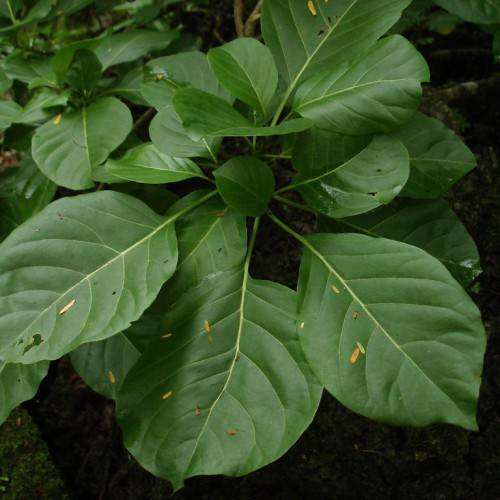
bird-catcher tree
Pisonia grandis
Cycle:
Perennial
Watering:
Average
Hardiness Zone:
11 - 12
Flowers:
Flowers
Sun:
Full sun
Fruits:
Fruits Ready In Summer
Leaf:
Yes
Growth Rate:
Low
Maintenance:
Moderate
Poisonous To Pets:
Yes
Salt Tolerant:
Yes
Thorny:
Yes
Invasive:
Yes
Care Level:
Medium
watering
Water the bird-catcher tree (Pisonia grandis) moderately and evenly. Water the plant only when the soil feels dry to the touch, approximately once every week or 2 during the growing season. During extreme heat, you may need to water the plant more often. Reduce watering frequency to every 10-14 days during the cooler months of the year. Avoid over-watering, as this can cause root rot in the plants.
sunlight
The bird-catcher tree (Pisonia grandis) is a hardy tropical species native to the Caribbean, Central America, the Pacific and Indian Oceans. Due to its natural bright colors and leafy form, this species is attractive to birds that often take rest or nest in its branches. Bird-catcher tree requires a full sun position to ensure healthy growth and thriving foliage. This means that the plant should be placed in an area where it is exposed to sunlight for up to 8 hours a day. Full sun is best during the mornings and early afternoon, when the sun is at its strongest. In general, the bird-catcher tree should be exposed to sun from 8:00 am to 4:00 pm. It is important to avoid subjecting the tree to prolonged midday and mid-afternoon sunlight, as this can lead to leaf damage or bleaching.
pruning
Pruning a Bird-catcher Tree (Pisonia grandis) should be done twice a year, once in the spring and once in early summer. The aim is to maintain its shape and encourage branching and flowering. When pruning, a light thinning of the canopy and removal of any shoots growing below the canopy branch level is recommended. Also, dead or broken branches should be removed. When pruning, always cut back to a side shoot or main branch at a 45-degree angle. This will help to promote the establishment of new shoots which will create a bushier and healthier tree.
